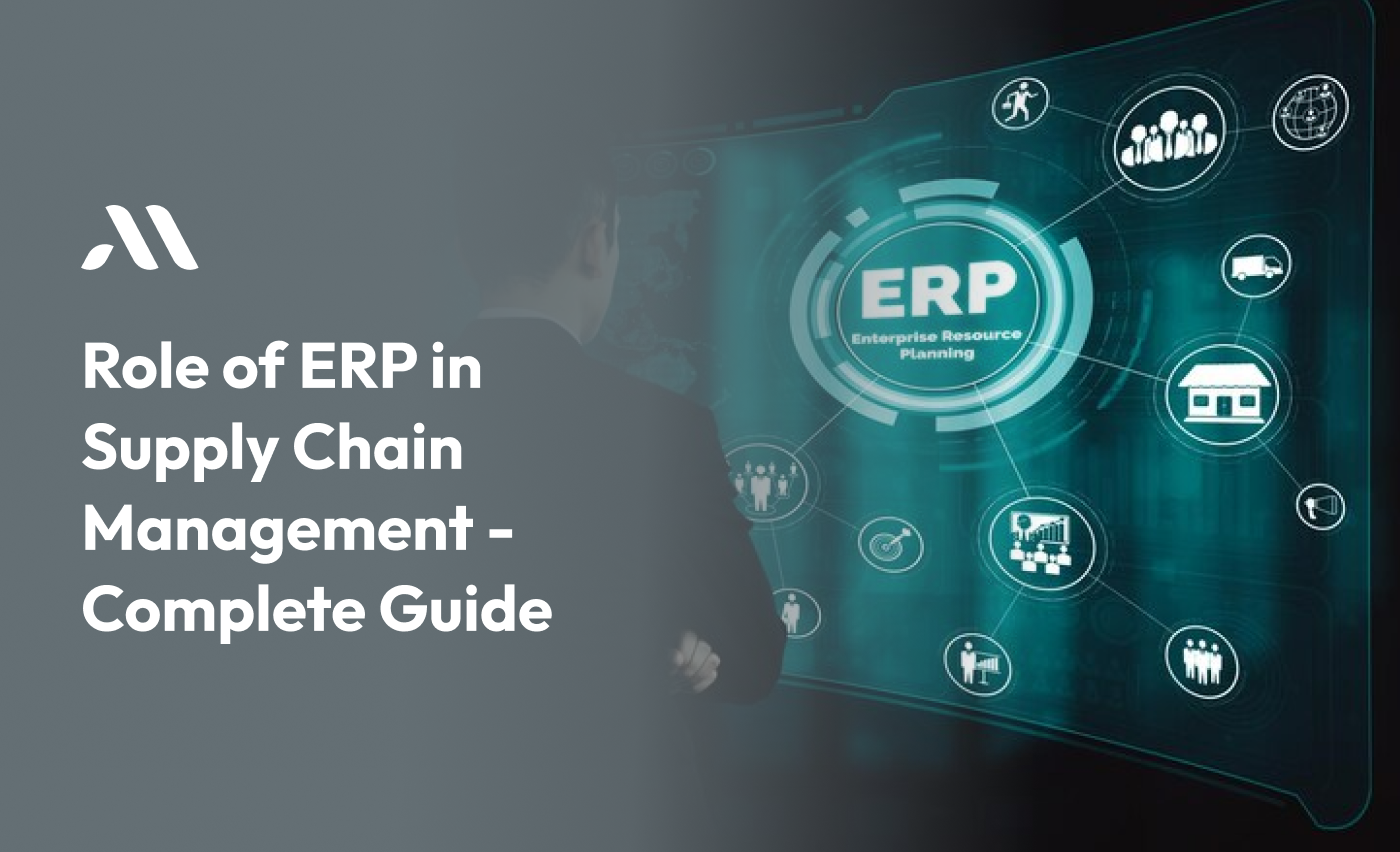In today's fast-moving business world, managing a supply chain efficiently is very important. This is where ERP, or Enterprise Resource Planning, comes in. Let’s explore how ERP in Supply Chain Management helps businesses run smoothly, making their processes faster and more efficient.
- Efficiency Gains: Businesses using ERP systems report a 30% increase in efficiency in their supply chain operations.
- Cost Reductions: Companies can save up to 20% on supply chain costs by implementing ERP systems.
- Customer Satisfaction: ERP systems improve on-time delivery rates by 25%, leading to happier customers.
What is ERP in Supply Chain Management?
ERP in Supply Chain Management is like a super tool for businesses. It helps manage everything from buying materials to delivering products to customers. Think of it as a big, helpful machine that keeps track of all the moving parts in your business.
Key Benefits of ERP in Supply Chain Management:
Improved Efficiency: ERP systems help businesses keep track of everything. This means fewer mistakes and faster processes.
Better Communication: With ERP, everyone in the company can see the same information. This helps people work together better.
Cost Savings: By using ERP, businesses can find ways to save money by reducing waste and finding better suppliers.
Real-Time Data: ERP systems provide up-to-date information, helping businesses make quick decisions.
How Does ERP Help in Supply Chain Management?
1. Inventory Management
One of the biggest parts of supply chain management is keeping track of inventory. ERP in Supply Chain Management helps monitor how much stock is on hand and how much is needed. This helps prevent overstocking or running out of items.
Tip: Regularly check your inventory levels with your ERP system to avoid surprises.
2. Order Processing
When a customer places an order, the ERP system helps track the order from start to finish. This includes processing payments, managing shipping, and updating the customer on their order status.
Note: Make sure your ERP system is set up to handle orders quickly to keep customers happy.
3. Supplier Management
ERP systems help businesses keep track of their suppliers. You can see which suppliers are the best and which ones might be causing problems.
Reminder: Keep your supplier information up-to-date in the ERP system to avoid any issues.
4. Demand Forecasting
Predicting what products will be needed in the future is crucial. ERP systems help analyze past data to predict future demand. This helps businesses prepare better.
“By using ERP for demand forecasting, companies can reduce excess inventory and improve customer satisfaction.” – Supply Chain Expert
5. Shipping and Logistics
ERP systems help manage the shipping and logistics part of the supply chain. This includes tracking shipments, managing delivery schedules, and ensuring products reach customers on time.
Tip: Use ERP to track your shipments so you can quickly address any delivery issues.
Why Choose a Custom ERP Development Company?
Sometimes, businesses need special tools that off-the-shelf ERP systems might not provide. A Custom ERP Development Company can create an ERP system tailored to your specific needs. This means you get exactly what you need to manage your supply chain effectively.
A Custom ERP Development Company can provide specialized solutions that fit your unique business processes. This can lead to even greater efficiency and cost savings.
Also Read - How IT Consultants Can Boost Innovation with ERP Systems
Category-Wise Examples of ERP in Action
Here are some simple examples of how ERP helps businesses:
1. A Toy Store: A toy store uses ERP to keep track of how many toys they have in stock. When a new shipment arrives, the system updates the inventory. This helps the store know when they need to order more toys and ensures they have enough for their customers.
2. A Bakery: A bakery uses ERP to manage its ingredients. The system tracks how much flour, sugar, and other ingredients they have. It also helps the bakery plan how much of each ingredient they need based on how many cakes they plan to bake.
3. A Clothing Store: A clothing store uses ERP to manage its clothing inventory and orders. When a customer buys a dress, the ERP system updates the stock and ensures the dress is shipped to the customer quickly.
4. Grocery Store: A grocery store uses ERP to manage its inventory of fruits and vegetables. The system helps track what’s in stock, what’s selling fast, and when to order more. This prevents spoilage and ensures fresh produce is always available.
5. Bookstore: A bookstore uses ERP to manage books and orders. When a customer buys a book, the ERP system updates the inventory and helps plan future orders. It also tracks the delivery process to make sure books arrive at the store on time.
6. Furniture Manufacturer: A furniture manufacturer uses ERP to handle raw materials, production schedules, and shipping. The system helps ensure that materials are ordered on time, production is efficient, and furniture is delivered to customers as promised.
Remember: If your business has unique needs, a Custom ERP Development Company can help create a system just for you.
Conclusion
ERP in Supply Chain Management is a powerful tool that helps businesses run smoothly. It improves efficiency, reduces costs, and enhances customer satisfaction. Whether you're managing inventory, processing orders, or handling logistics, ERP systems can make a big difference.
Looking for a way to streamline your supply chain? MicraSol can build a custom app just for you! Our easy-to-use solutions will make managing your inventory and orders a breeze. Contact MicraSol today and let’s make your supply chain smoother and smarter!
Bonus Tip: Always keep your ERP system updated and make sure everyone in your business knows how to use it properly. This will help you get the most out of your ERP system.
By using ERP in Supply Chain Management, you can keep your business running like a well-oiled machine.
FAQS
1. What is ERP in Supply Chain Management?
ERP in Supply Chain Management is a special tool that helps businesses keep track of everything from buying materials to delivering products to customers. It makes managing all these tasks easier and helps the business run smoothly.
What is inventory management with ERP?
Inventory management with ERP means keeping track of how much stock you have and how much you need. It helps make sure you don’t have too much or too little stock.
How does ERP handle orders?
ERP helps manage orders from start to finish. It processes payments, tracks shipping, and updates customers about their orders. This means you can keep everything organized and customers stay happy.
What does ERP do for supplier management?
ERP helps you keep track of your suppliers. It shows which suppliers are the best and which might have problems. This helps you choose the right suppliers and avoid issues.
How does ERP help with predicting future needs?
ERP uses past data to guess what products you will need in the future. This helps you prepare and avoid running out of important items.








